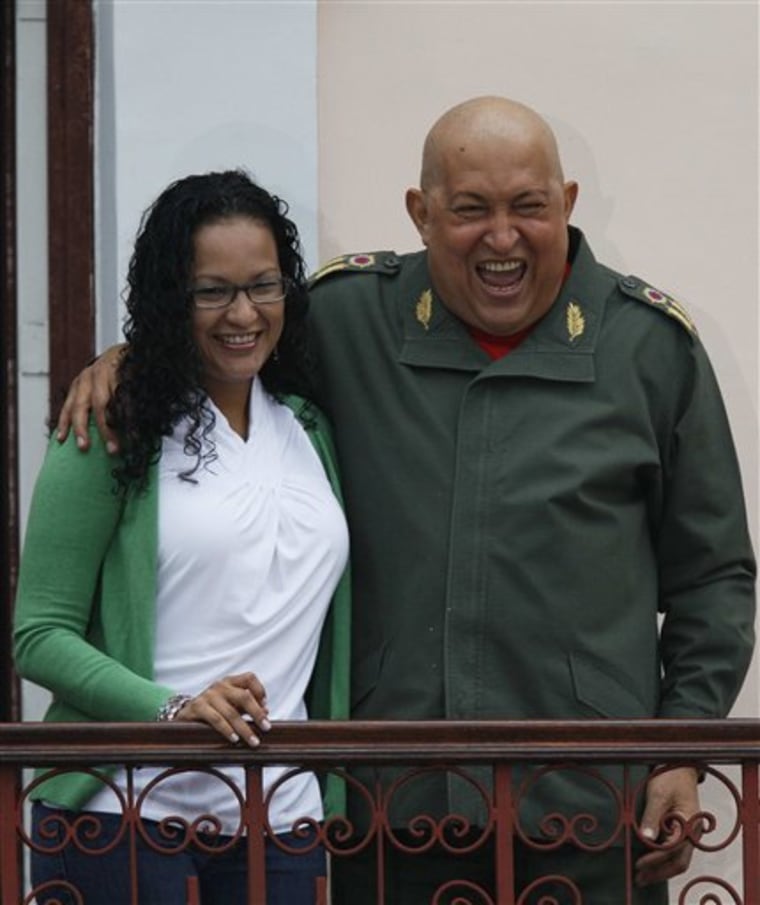The steady stream of wealthy Venezuelans moving to Panama to escape political and social unrest in their home country has not shown any signs of slowing since Venezuelan President Hugo Chávez revealed he is being treated for cancer.
But their political affiliation has changed.
Mr. Chávez's ongoing battle with cancer, for which he is receiving treatment this week in Venezuela, has some of his top military officials apparently considering contingency plans in Panama, according to one of Panama's top real estate developers.
"Now we have Chavistas who are fleeing Venezuela because Chávez is sick and they don't know how long he is going to last. We had something like six generals come here over the weekend. They figure: This guy is mortal; we need a plan B," says José Manuel Bern of real estate developer Empresas Bern.
Mr. Bern, whose family firm has delivered 25 buildings in the past five years, adds in perfect English, "[the Chavistas] are thinking: Man, if this guy croaks, you never know… we may have to go."
Bern says that even anti-Chávez Venezuelans who have flocked to Panama over the past decade, helping to fill the apartment glut from 75 new skyscrapers built in the past 10 years in a city of fewer than 1.5 million people, are not about to get on the first plane back home.
A precarious situation
The Venezuelans in Panama are too concerned with rampant citizen insecurity and political instability to return home anytime soon, he says. And any potential power vacuum caused by Chávez's untimely or unexpected removal from office would only make the situation more precarious.
So as long as long as Venezuela’s situation remains bad, Panama will continue to make lemonade, says Bern. "The situation in Venezuela is not going to go back to 1995," he notes.
It's not just unhappy Venezuelans who are fleeing to Panama.
The city — an incredibly metropolitan center of commerce and culinary options (considering it's a Central American capital) — has become a second home to people from all over the world. Bern says an increasing number of "fringe Republicans" are also moving to Panama, fleeing what they consider to be an intolerable situation in the United States.
In some ways, what's happening today in Panama is nothing new. This strange, snake-shaped country, where the sun appears to rise and set over the Pacific Ocean, has consistently benefited from crises in other parts of hemisphere. It started back to the early 20th century, when Panama was chosen as the site for an inter-oceanic canal due to political and seismic instability in Nicaragua.
Panama turns misfortunes into good luck
More than 100 years later, Panama continues its uncanny streak of converting others' misfortunes into its own good luck. Post 9/11 visa restrictions in the US have helped Panama develop into a new hemispheric shopping and airline hub, giving Miami a run for its money.
And even the global economic downturn and slowing world commerce came with a silver lining for Panama, which is racing to complete its massive $5.2 billion canal expansion by 2014.
"Ironically, the slowing world commerce will give us just enough time to finish the canal expansion before the current canal reaches its full 100 percent capacity," Panama City's erstwhile Mayor Juan Carlos Navarro told me in the thick of the crisis in 2009.
While Bern worries that Panama's luck may run out someday, especially if the country doesn't do more to invest in education, he says for the meantime, "I'd rather be lucky than good."
As long as there is a crisis somewhere in the hemisphere, Panama will continue to benefit, Bern says. And given the hemisphere's penchant for crisis, that's money in the bank for Panama.
This article, "Pro-Chavez Venezuelans consider move to Panama," first appeared on CSMonitor.com.
